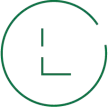This week, a patient (who I was treating for back pain) asked if I knew anyone who could help with his shoulder injury. I was a little surprised — because shoulder injuries are one of the most common issues we treat.
That made me realise: I probably haven’t done the best job of explaining what osteopaths actually treat. So, here’s a quick breakdown to clear things up.
What Do Osteopaths Treat?
Osteopaths specialise in the neuromusculoskeletal system – that’s a fancy way of saying:
Neuro = Nerves
Musculo = Muscles (including tendons)
Skeletal = Bones (including joints, cartilage, and ligaments)
We don’t treat broken bones, but we do treat the joints and soft tissues that support them. These areas are involved in nearly every movement your body makes – which means when something goes wrong, it can affect your whole system.
Common Problems We Help With:
Back pain
Neck pain
Shoulder injuries
Sciatica
Hip & knee pain
Headaches
Jaw pain
Elbow, wrist & foot pain
Sports injuries
Pelvic pain / pregnancy related pain
Vertigo
As you can see, pain is a common reason people come to see us — but it’s not the only one. We also help patients who want to:
Improve posture (e.g. rounded shoulders or forward head)
Increase flexibility and mobility
Prevent future injuries or discomfort
Reduce stress
What About Babies and Children?
Some of our osteopaths also treat babies and children using very gentle, hands-on techniques. This can be helpful for:
Feeding or latching difficulties
Colic or reflux
Unsettled behaviour
Flat head syndrome
Birth trauma or muscular tension after delivery
Many patients first come to us because they’re in pain — but they stay because they want to take a more proactive approach to their long-term health and movement.
If you’re not sure whether osteopathy can help with something you’re dealing with, just ask — you might be surprised!
Best,
Shane Morris
Leyton Osteopaths
